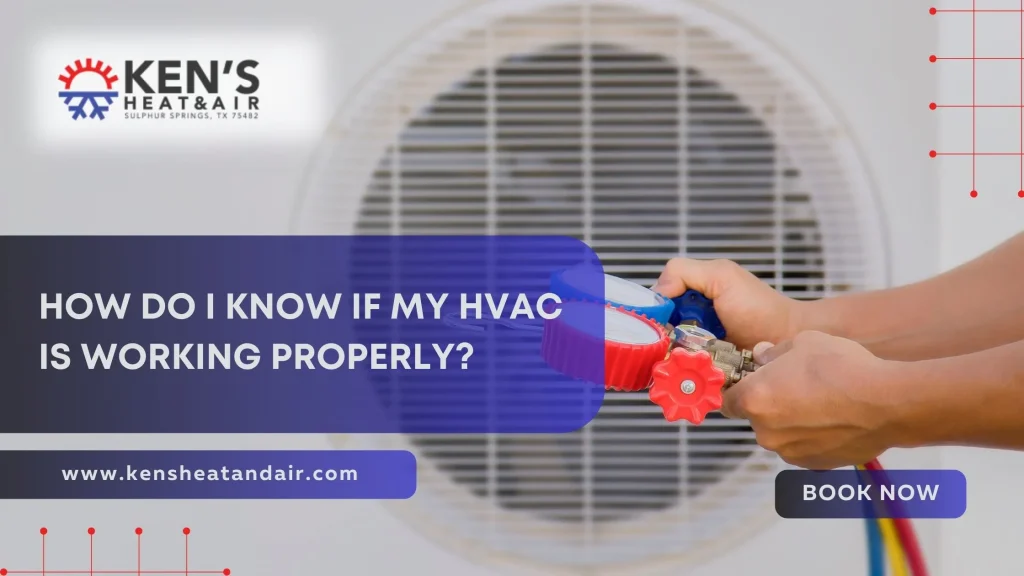
Introduction
Having a properly functioning HVAC (Heating, Ventilation, and Air Conditioning) system is essential for maintaining a comfortable indoor environment. Your HVAC system works hard year-round to keep your home or office cool in the summer and warm in the winter. However, like any mechanical system, it can experience issues from time to time. In this article, we will explore how to determine if your HVAC system is working properly and what steps you can take to ensure its efficiency.
Table of Contents
- Signs of a malfunctioning HVAC system
- Steps to ensure your HVAC system is working efficiently
- Frequently Asked Questions
- Conclusion
Signs of a malfunctioning HVAC system
There are several warning signs that indicate your HVAC system may not be functioning properly. By recognizing these signs early on, you can address any issues before they lead to more significant problems. Here are some common signs of a malfunctioning HVAC system:
- Inconsistent temperature: If you notice that certain areas of your home or office are consistently hotter or colder than others, it could be a sign that your HVAC system is not distributing air evenly.
- Strange noises: Unusual sounds, such as banging, rattling, or squealing, coming from your HVAC system can indicate mechanical issues that need to be addressed.
- Weakened airflow: If you feel a decrease in the airflow from your vents, it could be a sign that your HVAC system’s blower motor is not working properly.
- Increased energy bills: A sudden increase in your energy bills without any significant changes in your usage can indicate that your HVAC system is not operating efficiently.
- Frequent cycling: If your HVAC system is turning on and off more frequently than usual, it may be struggling to maintain the desired temperature, which can indicate a malfunction.
- Unpleasant odors: Foul or musty smells coming from your HVAC system could indicate mold or other issues that require immediate attention.
If you notice any of these signs, it is important to address them promptly to prevent further damage to your HVAC system and ensure optimal performance.
Steps to ensure your HVAC system is working efficiently
To ensure that your HVAC system is working efficiently and effectively, there are several steps you can take:
- Schedule regular maintenance: Regular HVAC maintenance, including professional inspections and tune-ups, can help identify and address any potential issues before they become major problems.
- Change air filters regularly: Dirty air filters can restrict airflow and put unnecessary strain on your HVAC system. Make sure to change your filters according to the manufacturer’s recommendations.
- Keep the area around your outdoor unit clear: Clear away any debris, leaves, or vegetation around your outdoor HVAC unit to ensure proper airflow and prevent blockages.
- Seal air leaks: Inspect your home or office for any air leaks around windows, doors, and ducts. Sealing these leaks can improve energy efficiency and reduce strain on your HVAC system.
- Upgrade to a programmable thermostat: A programmable thermostat allows you to set different temperature schedules throughout the day, optimizing energy usage and reducing unnecessary heating or cooling.
By following these steps, you can help prolong the lifespan of your HVAC system, improve its efficiency, and save on energy costs.
Frequently Asked Questions
Q: How often should I have my HVAC system serviced?
A: It is recommended to have your HVAC system professionally serviced at least once a year. This regular maintenance will help identify any issues and ensure that your system is running smoothly.
Q: Can I perform HVAC maintenance myself?
A: While there are some maintenance tasks, such as changing air filters, that you can do yourself, it is generally recommended to have a professional HVAC technician perform regular inspections and tune-ups to ensure optimal performance.
Q: How long do HVAC systems typically last?
A: The lifespan of an HVAC system can vary depending on factors such as maintenance, usage, and the quality of the system. On average, a well-maintained HVAC system can last between 15 to 20 years.
Conclusion
Ensuring that your HVAC system is working properly is crucial for maintaining a comfortable indoor environment and minimizing energy costs. By recognizing the signs of a malfunctioning HVAC system and taking proactive steps to ensure its efficiency, you can enjoy reliable heating and cooling year-round. Remember to schedule regular maintenance and address any issues promptly to keep your HVAC system running smoothly for years to come.

